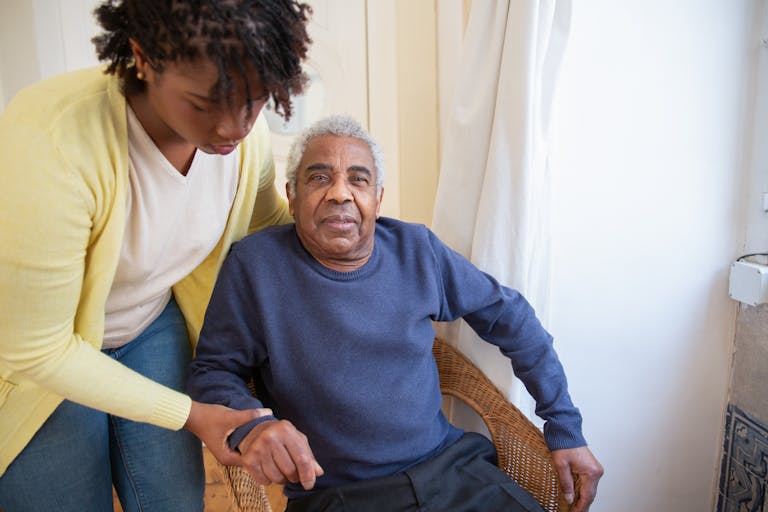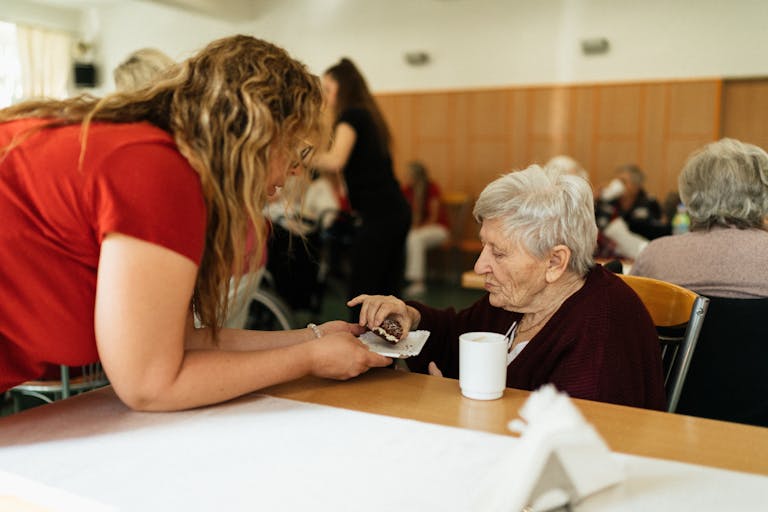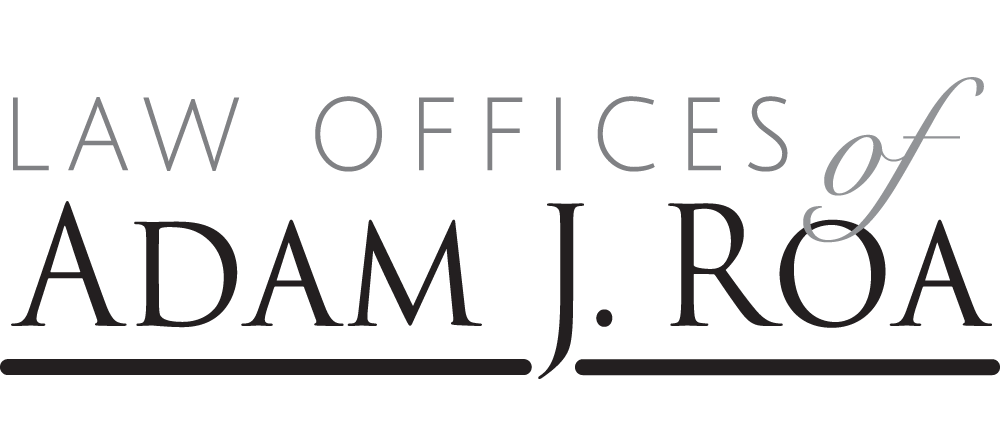
Blog

Guardianship Certificates
Guardianship Certificate

Can a Disabled Sign a Last Will and Testament?
Having a disabled sign a last will and testament is a tricky area of the law. The Court determines whether a person’s signature on the last will and testament is valid. If a person signs a Last Will and Testament and there are two witness signatures, is that enough? There are various ways to attack…

Guardianship Issues – Physician Certificates – Part 2
guardianship for a parent. Physician Certificates

Guardianship Issues – Guardianship Physician Certificates – Part 1
guardianship physician certificates

Do You Need an Attorney to Apply for Maryland Medicaid?
Applying for Medicaid (i.e., Medical Assistance) can be like walking into a minefield. There are a number of ways that a Medicaid application can go wrong—and the consequences can be absolutely devastating. Here are some examples of common problems we see. 1. Nursing Home Mistakes Sometimes a nursing home files the Medicaid application but doesn’t…


Free Britney Spears: Disturbing Issues About Adult Guardianship
Disturbing Issues About Adult Guardianship. The Britney Spears conservatorship raises a number of interesting issues (that are somewhat complex and disturbing) of how an adult could be subject to guardianship. The obvious issue is how the state can take away your rights to make health care and financial decisions, when, from the outside, you appear…

The Scary Truth Behind Netflix’s “I Care a Lot”
I Care a Lot is a recently released Netflix film that follows the fictional account of a nursing home administrator who systematically exploits the elderly for financial gain. There are dramatic scenes of Marla Grayson (the nursing home administrator) with her wall of mugshots of her elderly residents. It shows a dramatic insensitivity that the…

Financial Power of Attorney in Maryland
power of attorney

Contest a Last Will and Testament
will contest

Contesting a Will and a Beneficiary Designation Change
When you consider contesting a last will and testament, you might also have to consider contesting changes to certain additional assets—for example, an account that has had a change in beneficiary designation or a change to joint account status. A Common Scenario for Contesting a Last Will and Testament and Beneficiary Change Let’s go back…

An Advance Directive for Nursing Home Negligence Cases
Having a properly executed advance directive is absolutely critical in nursing home negligence cases. What is an advance directive? An advance directive is a legal document that allows you to explain your decisions about medical care. If you are unable to make decisions or communicate in the future, this makes it easier for your loved…

Documenting Nursing Home Neglect
Nursing Home Neglect At some nursing homes and assisted living facilities, the staff and aides are underpaid, untrained, and overworked. In these situations, there is usually a high turnover rate. Therefore, mistakes might often be repeated and not corrected. The mistakes only come to light when disaster strikes, and a family member is willing to…

Protect Your House from Nursing Home Costs
Protect your house from nursing home costs


Filing a Petition for Adult Guardianship in Maryland
One of the first steps in the Maryland adult guardianship process is filing a petition with a circuit court. If you’re preparing to file a petition for guardianship, you might have some questions. Am I eligible to petition for guardianship? According to the law, you must be an interested person to petition for guardianship. An interested…

Maryland Adult Guardianship Process
Maryland Adult Guardianship Process: If someone’s health condition prevents them from making decisions regarding their medical care and finances, they may need a court appointed adult guardian. How to Become an Adult Guardian in Maryland We routinely provide advice regarding the guardianship rules and processes. Here is an overview on how to become an adult…
Photocopy of Last Will and Testament
Lost last will and testament
Probate: Post-Death Planning
Probate: Post-Death Planning Sometimes a proposed beneficiary distribution needs to be corrected after the death of a loved one. Example 1: Grandchildren Born After the Will Was Signed Probate: Post-death planning. One common circumstance is when a grandparent’s last will and testament clearly indicates that all of her grandchildren will inherit an equal share. She…
Maryland Inheritance Tax
The Maryland inheritance tax is what I like to call the “sneaky death tax.” For many families, the imposition of the federal estate tax and the Maryland estate tax is not a practical concern, since these taxes only apply to multi-million-dollar estates. However, the Maryland inheritance tax is a 10% tax on all distributions to…
Probate Creditors
Creditors are one of the more complicated parts of the Maryland probate process. One of the core functions of a personal representative is to determine if there are creditors for the estate. Making a mistake regarding creditors is one of the few ways that a personal representative can be held personally responsible for a mistake…
Maryland Probate Process
At its core, the Maryland probate process is the court-required system designed to account for a deceased person’s assets, identify their creditors, and approve the distribution to estate beneficiaries. For many families, this process can be overwhelming, and many people do not even know where to start. Here is a brief summary to guide you…
Medicaid Cuts
Transferring Medicaid Costs From the Federal Government to the State There is constant pressure from the Federal government to cut Medicaid costs. One drastic solution is to push Medicaid costs from the Federal government to the State. Instead of being treated as an entitlement program (i.e. if you are eligible then you will be covered),…
Possible Medicaid Changes
Medicaid Cost Cutting One of the various changes proposed by candidate Trump was the idea of shifting Medicaid responsibility from the Federal Government to the States. The rational proposed by Trump was that such a move would “maximize flexibility to states via block grants so that local leaders can design innovative Medicaid programs that will…
Another Win!
We have another nursing home win! In this matter, the nursing home worked with the client (before we were hired) to file the Medicaid application for her disabled husband. Client knew little of what was involved with the Medicaid application and relied on the nursing home to complete the application and file it. During the application process…
Guardianship
Guardianship Certificates One of the key items in a guardianship process are the certifications needed to prove to the court that a person lacks the ability to make rational decisions regarding her health or finances. In many cases it may be possible to work with a parent to have them examined by two physicians and the…
Assisted Living Negligence
There are two key issues to consider for facility negligence: What is the harm that was caused? Did the facility breach their standard of care? A Typical Example Let’s suppose your mother lives in an assisted living facility. She needs an aide attending to her every time she walks because she’s considered at risk for…
Nursing Home Negligence
In many instances of nursing home or assisted living negligence, medication mismanagement is the direct cause of other issues, such as a resident falling down. It All Starts Well Consider this example. Your mother is a resident in an assisted living facility. She needs 9 different medications given to her on a daily basis. She…
Signs of Nursing Home Negligence
The Facility’s Responsibility When your parent transitions to a nursing home or assisted living facility, a significant agreement is made. The facility agrees to provide care as your parent needs, in exchange for a hefty monthly fee. Nursing homes and assisted living facilities often categorize their care into 3 levels. Level 1 is a step…
Medicaid Income Issue
Medicaid Medical Assistance Rules About Countable Assets Medicaid Medical Assistance rules clearly indicate that: Income is converted at the beginning of the next month to a countable asset. Applicants can have no more than $2,500 in countable assets. Applicants whose incomes are deposited at the beginning or middle of the month usually have no issues with…
Medicaid Mess
Filing for Medicaid Filing for Medicaid (called Medical Assistance in Maryland) is a very paper intensive process. Often times it is the children of the parent who ends up trying to gather the mountain of information needed for the application process. Given the five year look back requirement, the burden is often high on that family…
Bed Sores
Paying Attention: Nursing Home Staff Bed sores are often the result of nursing home staff not paying a resident any or very little attention. A parent is left on their bed, unable to care for themselves, fecal matter accumulates, and there is a rapid break down of their skin. Serious infection follows. This is negligence at…
Falls at a Nursing Home
Standard of Care to Prevent Falls Nursing homes and assisted living facilities are under a duty to care for their residents. This includes a standard of care when it comes to their residents who are at risk of falling. When a nursing home or assisted living facility breaches that standard of care and a resident…
Elder Exploitation
Our firm was recently successful in helping a family recover funds for an elderly mother and her adult disabled son who was subject to guardianship. The person of interest was a neighbor who posed as an accountant to prepare the elder mother’s and her disabled son’s tax returns. Unknown to our client was that this this individual opened…
Another Win! – Will Contest
We had another will contest win. Our client was gracious enough to send us a card expressing her thanks. This is what she had to say: “Thank all of you for the way you handled our case. You guys are wonderful. Along with being very professional, you showed us such compassion. You guys went over…
Another Win! – Medical Assistance Issue
We just won another Medical Assistance appeal issue. In this case, Medical Assitance was initially denied for nursing home benefits and the son of the Medical Assistance applicant was handed an invoice from the nursing home for over $100,000. Needless to say, he was upset. We were able to successfully argue that that the transactions…
Should I Sign the Nursing Home Contract?
A very common situation for my clients (or potential clients) find themselves in is the chaotic situation of transferring their parent from a hospital to an area nursing home for rehabilitation. It is in this situation, when emotions are high, people are tired, that the nursing home will, at the last second, wants the son or daughter…
Two Guardians?
Can We Have Two Guardians Serve at the Same Time? The answer to this is easy: yes. However, the more interesting question is should you have two individuals serve as guardians at the same time. Remember, that as co-guardians each of you would have to agree on every decision. If you didn’t agree each of…
Looking for IRA Assets
The issue of whether or not an IRA asset is a countable asset is an interesting issue from a Maryland Medical Assistance perspective. For individuals and their spouses, when an ill spouse goes into a nursing home and reviews the issue of applying for Medical Assistance for the ill spouse, the issue that routinely comes…
New Medicaid Numbers
Medicaid Spousal Impoverishment Figures for 2012 The new minimum community spouse resource allowance (CSRA) is $22,728, and the new maximum CSRA is $113,640. The new maximum monthly maintenance needs allowance is $2,841. The minimum monthly maintenance needs allowance remains $1,838.75. This has yet to be implemented for Maryland. It is expected to come out shortly. It is unclear…
Increase in Nursing Home Costs
According to the newly published survey by Metlife, the average cost of long term care continues to rise. According to the report the average room nursing home rates rose nationwide by 4.4 percent to $87,235 a year or $239 a day, while assisted living facility costs jumped 5.6 percent on average to $41,724 a year…
What is a countable asset?
For Medical Assistance (i.e. Medicaid) eligibilty, Maryland will examine the amount of assets held by the applicant and by the applicant’s spouse (if any). The most the applicant may have at the time of filing is $2,500 and the most a spouse may have (currently) is $109,560. The bigger question is what is a counable…
Nursing Home Asset Protection
A good portion of our clients engaged in virtually no planning (before they came to our office) when faced with a parent or loved one entering a nursing home. Even in this late stage of the game, there are plenty of opportunities to protect a parent’s or loved ones’ assets from nursing home related costs. …
Medical Expense Deduction
Recent Tax Court Decision Clarifies When Long-Term Care Expenses are Deductible There is no question that long-term care can be very expensive (both assisted living and nursing home level of care). However, many of these long-term care expenses can be deducted the parent’s income tax return as a medical expense deduction. A recent U.S. Tax Court…
Medicaid Asset Protection
Medicaid Asset Protection from Nursing Home Expenses One of the most often used techniques to protect assets for a single individual is the use of the “controlled gifting” technique. With this technique the higher the fixed income and lower the nursing home costs the greater the savings. This technique involves controlled gifting and most likely the use of…
Medicaid Recovery of Transferred Assets
What is cited below is another jurisdictional case which illustrates the limits of what a State may do to accomplish a Medical Assistance (i.e. Medicaid) recovery on community spouses’ assets. In this case, an attempt was made to put a Medicaid lien on the estate of a recently deceased community spouse at a time when the…
Medical Assistance Update
FIA Transmittal 11-26 The Department of Human Resources just released an update changing the document requirements for a Medical Assistance application. The changes for what is required in the initial application is a profound change in terms of the financial statement documentation that is initially needed. Instead of a full five years worth of documentation, what would be needed…
POA Breach of Fiduciary Duty
A Power of Attorney Holder’s Breach of Fiduciary Duty There is no question that a financial power of attorney holds what is called a “fiduciary duty” to act in the best interests of the grantor. But what if that power of attorney holder breaches that duty and takes “mom’s” funds for herself? What if her…
Inherited IRA and 401(k)s
Does a Surviving Spouse have a Right to the Deceased Spouse’s 401(k) or IRA? When choosing a beneficiary for a retirement plan, it is important to understand how your spouse will be treated under the plan. Surviving spouses are treated differently under 401(k)s and individual retirement accounts (IRAs). While a 401(k) provides protections for a…
New Estate Tax and Gift Tax Rules
Congress passed and President Obama has signed into law the deal extending the Bush tax cuts that he struck with Congressional Republicans. The legislation restores the estate tax for two years at a 35 percent tax rate, with estates up to $5 million exempt from paying any tax ($10 million for couples). If Congress does…
Asset Transfer Does Not Trigger Penalty
Normally, for every $6,800 transferred out of a Medical Assistant’s name or their spouse, it will result in a penalty of one month of ineligibility. However, a frequent question is what happens if my parent transferred funds when they were healthy but during the five year look back period? Maryland case law on this is…
New Average Nursing Home Costs Released
Metlife recently released their study confirming that nursing and assisted living rates increased nationwide between 2009 and 2010. For Maryland, in the Baltimore region nursing home costs for semi-private rooms ranged from $6,200/month to $8,742/month. Nursing home costs for private rooms ranged from $6,510/month to $11,005/month. Statewide, assisted living costs in 2010 ranged from $2,800/month…
Nursing Home Expenses
Use of Medicaid Recipient’s Income to Pay Existing Nursing Home Expenses The Department of Health and Mental Hygiene released a critical Medical Assistance eligibility update (MR 154). The changes in this update are profound. It now allows a nursing home Medical Assistance recipient to use her income to pay for nursing home related expenses (up…
Nursing Home Discharges
Once a resident is settled in a nursing home, being told to leave can be very traumatic. Nursing homes are required to follow certain procedures before discharging a resident, but a facility may occasionally attempt to “dump” an undesirable resident by transferring the resident to a hospital and then refusing to let the him or…
Pooled Trusts
Transferred to Pooled Trust Can Be Used to Save Assets For the past number of years there have been questions as to whether Medicaid transfer-of-assets penalties would apply to transfers to pooled trusts by individuals age 65 and older. A Centers for Medicare and Medicaid Services (CMS) memo dated April 14, 2008, from Gale Arden…
Guardianship
If My Sister and I both File for Guardianship for our Mother, who has Priority? The starting point is what type of guardian do you seek. There are two types of guardians. The first is the guardian of the person. It is this person that makes medical related decisions on behalf of the disabled. The…
Online Legal Forms
Online Legal Forms Company Sued LegalZoom, one of the most prominent sellers of do-it-yourself wills and other estate planning documents, is the target of a class action lawsuit in California charging that the company engages in deceptive business practices and is practicing law without a license. The lawsuit was filed in Los Angeles Superior Court,…
Maryland Power of Attorney – Part 2
Maryland Power of Attorney Upon review of the new financial power of attorney statutory language for both the short and long form, there are many good aspects with the new provisions. There are enforcement provisions in this new law. Before, a bank could refuse to honor your power of attorney and there would be virtually…
Maryland Power of Attorney
Maryland Power of Attorney The Maryland General Assembly just passed and the governor signed into law sweeping new changes regarding Maryland financial powers of attorney (Maryland Uniform Power of Attorney Act – Loretta’s Law). There are a whole host of changes including new execution requirements, new statutory language, enforcement provisions, financial agent disclosure and non-disclosure…
Contested Guardianship
Adult contested guardianship can occur when a parent losses the ability to make decisions for her health and/or her financial well-being. Is There a Need for a Guardian? Having a properly executed financial power of attorney and advance directive can certainly avoid the need for guardianship in many instances. But, what happens if the financial…
Pooled Trusts
The use of Pooled Trusts just became more viable as a method by which to protect assets from nursing home expenses.
Saving the Home
Home Value Issues Medicaid rules involving a primary residence are complex with some rules involving initial eligibility with others relating to Medicaid lien provisions. In many cases, the primary residence is an exempt asset not counted as part of the $2,500 (applicant) and $109,560 (community spouse – maximum) threshold. However, in many cases it is…
Gravesites
Watch Out! From a Maryland perspective, Medical Assistance (i.e. Medicaid) only allows one gravesite per person to be exempt. If there is a community spouse, then that community spouse is also only allowed to have one. If there is more than one per person, it is a fully countable asset for Medicaid purposes and the…
Medicaid Asset Threshold
Asset Levels for Maryland Medicaid For Maryland purposes, the Medicaid applicant can have no more than $2,500 in countable assets while the community spouse can have no more than $126,420 (can be less) in countable assets. There are many instances where the community spouse will have a lower asset threshold. The key is what is…
